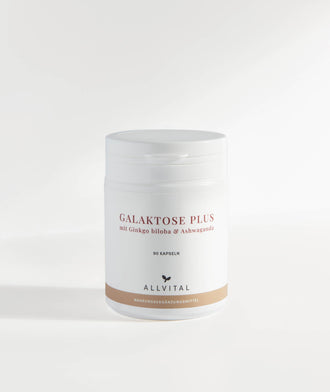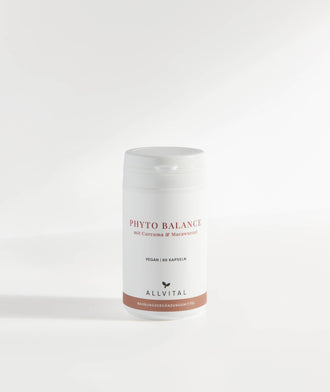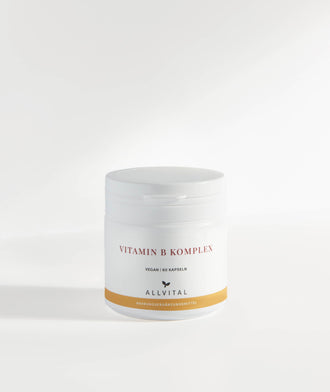
The chemistry of love – serotonin, dopamine & more
Why do we feel so euphoric, connected, and sometimes even a little out of control when we’re in love? The answer lies not just in the heart.
Love goes through the brain
Love feels magical, but behind this emotion is a complex biochemical process. Our brains are flooded with countless chemical messengers that regulate our emotions, behavior, and even physical reactions. Among the most influential are neurotransmitters like dopamine, serotonin, oxytocin, and vasopressin, which shape our mood, motivation, and ability to form bonds.
However, this system is highly sensitive. Stress, nutrient deficiencies, and poor gut health can all interfere with neurotransmitter production and regulation. The consequences range from low energy and mood swings to difficulties in relationships.
With Valentine’s Day—a celebration of love—approaching, it’s the perfect time to take a closer look at these processes. Understanding how neurotransmitters work and what throws them off balance allows us to take action and keep them in check—leading to more well-being, connection, and joy.
Which neurotransmitters are involved in love?
Below, we introduce some of the key neurotransmitters that shape our emotions in love and relationships. Beyond romance, they play essential roles in many other aspects of our lives.
Dopamine – the reward hormone
Dopamine is the driving force behind motivation and learning. It amplifies feelings of pleasure, drive, and enthusiasm—not just in love but also in moments of success and new challenges. When we fall in love, our brains release large amounts of dopamine, creating euphoria, increased energy, and a strong desire to be close to the person we love.
Serotonin – the feel-good hormone
Serotonin regulates mood, promotes relaxation, and enhances emotional stability. It also influences the sleep-wake cycle, pain perception, and even digestion. A balanced serotonin level protects against anxiety, irritability, and depressive moods.
Interestingly, serotonin levels tend to drop during the initial stages of romantic love, which may explain the obsessive thoughts and behaviors often seen in those who are infatuated. However, in the long run, a healthy serotonin balance is essential for maintaining a stable and lasting relationship.
Oxytocin & vasopressin – the bonding hormones
As relationships progress, the neurotransmitters oxytocin and vasopressin take on a more significant role.
Oxytocin strengthens emotional closeness and trust. It is released during physical touch, kissing, and hugging and also plays a crucial role in friendships and parent-child bonding.
Vasopressin, often referred to as the "loyalty hormone," promotes long-term commitment and attachment. It also plays a role in regulating the body's water balance.
Together, these two neurotransmitters act as the biochemical glue that helps maintain strong, stable relationships—both romantic and social.
Metabolism of neurotransmitters
For our brain to be adequately supplied with neurotransmitters, these chemical messengers must be synthesized from specific precursor substances. A crucial factor in maintaining neurotransmitter balance is ensuring that these precursors are available in sufficient quantities and that the enzymes responsible for converting them into neurotransmitters can function properly. These enzymes require various cofactors, such as specific vitamins, minerals, and trace elements.
Below, we take a closer look at the production of dopamine and serotonin, as these neurotransmitters play a vital role in many bodily processes.
Dopamine synthesis
Dopamine is produced in the nervous system and adrenal medulla from the amino acid tyrosine. Tyrosine can either be synthesized in the liver from the essential amino acid phenylalanine or obtained directly from protein-rich foods such as meat, fish, eggs, and dairy products.
Within the body, tyrosine is first converted into L-Dopa and then processed into dopamine with the help of specific enzymes. These conversion steps depend on various B vitamins, vitamin C, and magnesium.
Serotonin synthesis
Serotonin is derived from tryptophan, an essential amino acid found in foods such as bananas, oats, nuts, eggs, and cheese. Tryptophan undergoes several conversion steps in the body, first transforming into 5-hydroxytryptophan (5-HTP), which is then converted into serotonin. These processes require various micronutrients, including vitamin B6, magnesium, zinc, and folate.
Since a significant portion of serotonin is produced in the gut, gut health plays a crucial role. An imbalanced gut microbiome can impair serotonin synthesis, whereas a diet rich in prebiotic and probiotic foods can support its production.
How our lifestyle affects neurotransmitters
A well-balanced neurotransmitter system is essential for emotional well-being. However, various factors can disrupt neurotransmitter production and regulation, with far-reaching effects on mood, behavior, and even relationships.
Some of the key causes of neurotransmitter imbalances include:
- Micronutrient deficiencies: Essential nutrients such as amino acids, vitamins, minerals, and trace elements are necessary for neurotransmitter synthesis and function. A nutrient-poor diet or an increased demand for micronutrients due to stress and environmental toxins can lead to deficiencies.
- Chronic stress: Prolonged stress increases cortisol levels, which inhibits serotonin and dopamine production. At the same time, dopamine is used up more quickly, potentially leading to long-term motivation and energy depletion. Stress also negatively impacts gut health.
- Poor gut health: The gut is closely linked to the nervous system through the gut-brain axis. An imbalanced gut microbiome can hinder neurotransmitter production and even increase the risk of depressive symptoms.
- Lack of sleep: During sleep, the brain regulates neurotransmitter stores and regenerates the nervous system. Insufficient or poor-quality sleep reduces dopamine and serotonin levels, negatively affecting mood and concentration.
So, for those who want to not only feel love on Valentine’s Day—but also support it biochemically—focusing on a nutrient-rich diet, stress management, gut health, and sufficient sleep is key.
More tips for a healthy neurotransmitter balance
In addition to the “fundamental tips” mentioned earlier, there are other measures that can help restore and maintain neurotransmitter balance. These include:
- Exercise: Physical activity increases dopamine release and boosts mood, especially endurance sports like jogging, dancing, or cycling.
- Sunlight: UV rays stimulate serotonin production and improve mood—daily time outdoors is essential.
- Social interactions: Close connections, physical touch, and deep conversations boost oxytocin levels and have a positive impact on serotonin and dopamine.
Which supplements can help?
To support neurotransmitter balance and nervous system health, high-quality supplements can be a valuable addition. Here are some recommended options:
- Galactose Plus: This unique sugar serves as an energy source for brain cells and can enhance cognitive performance and neurotransmitter synthesis.
- Phyto Balance: A blend of adaptogenic plant extracts that helps reduce stress and promotes emotional balance and well-being.
- Vitamin B Complex: B vitamins, especially B6, B12, and folate, are essential for neurotransmitter synthesis and support overall nervous system function.
Conclusion: Love needs balance—not just in the heart, but in the brain
Love, attraction, and feelings of happiness are all driven by a sophisticated biochemical system. Serotonin, dopamine, and oxytocin are the key players shaping our emotional experiences—but keeping them in balance doesn’t happen automatically.
A conscious lifestyle, a nutrient-rich diet, and targeted supplementation can help ensure that the "chemistry of love" functions optimally. So why not use Valentine’s Day as an opportunity to nurture not just your relationships with others, but also your relationship with yourself? A well-balanced neurotransmitter system not only fuels romantic highs but also promotes long-term emotional well-being and overall happiness.




